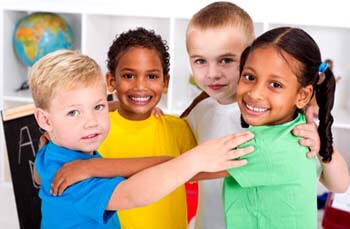When people carry a more severe diagnosis or disorder, such as psychotic disorders and symptoms of psychosis, socialization is even more critical. Why? On the mere level of orientation and perception, when people maintain their connections with other people, it also means, with some exceptions, that he or she is as “tuned in” to the world around them, given their social world demands their attention, focus, and enough concentration to operate without incident on a socialized landscape. There is no question that folks suffering from psychosis and experiencing symptoms of psychosis pass through altered realities, mystical states, and extreme changes in perception. However, when other people are included in our worldview, so too is their orientation, which is hopefully healthy in nature, as this both passively and actively contributes to how we understand our world.
When my perception shifted, I was isolated, ostracized, and abandoned by friends. This is the outcome for so many with active psychosis symptoms because (let’s face it) our friends are exposed to a radically different shade of ourselves. We can seem strange and bizarre in behavior, and our speech can be altered irreconcilably. Such poor timing for changes in our disposition when we are in a space that desperately demands stabilization, peer connection, and other organic supports best cultivated by good health. This is why these conditions are so severe, challenging to rally back from, and can position the person carrying the diagnosis in potentially dangerous situations. All the while, we feel increasingly isolated and misunderstood.
For affective or mood disorders, socialization can be a tricky endeavor too. Have you ever tried to socialize while in a manic state? I mean, totally elated, grandiose, and speaking at a rate that your mouth can’t keep up with your thoughts, all of which seem more brilliant than the next. Given I have experienced this firsthand and also observed it with friends battling mood disorders, I know very well how difficult it is to maintain healthy connections with friends when they are fearful and so concerned about your welfare that they spend more time watching over you than connecting with you in a meaningful way. This is the most gut-wrenching aspect of having a mental health condition, needing support, and pushing away our support because of a disordered mental status.
While the specific benefits of socialization to disorder type are unclear, the importance of maintaining social connections is not. The unwavering need for people with and without mental health conditions to develop and cultivate meaningful, supportive, and organic connections is also as clear as day. More research must be conducted to determine how specific mental health symptoms can be targeted by social interactions, kinship networks, family support, and other socialized mediums that enrich our lives and offer conditions supporting a healthy lifestyle.
I am suggesting the socialized landscape can be mapped out, charted, and better understood by researchers evaluating support and the prognosis of people with severe mental health conditions. In doing so, research can offer clinicians working with people with severe mental health disorders recommendations and other suggestions for re-working and re-patterning their social world to best promote a healthy space for their recovery to blossom. With this said, clinicians can identify and mark protective factors more quickly and leave their patients or peers in a better position when left to their devices. The mental health system speaks fondly of socialization but does little to support those engaged.
This is a problem for everyone involved in the recovery process. Clinicians need to provide psychoeducation to the friends and relatives of those with a diagnosis, not just the patient, to honestly expect real natural support cultivated that will have a lasting impact on the life of those in recovery. Friends, relatives, and other collaterals without psychoeducation are ineffective players in the recovery process and can put the diagnosed person at risk of relapse or worsening symptoms without training to respond to the diagnosed person’s particular needs for maintaining and accessing social support and resources.
Even more important is providing recovery-focused attitudes about what to expect from someone with a specific diagnosis regarding their capacity to socialize and access social support appropriately, given where they are in the recovery process. This skill set is multidimensional and not quite as simple as telling someone to make a friend so they have someone else besides a therapist or case manager in their lives.
Without teaching realistic expectations and a skillset targeting specific disorders and courses of treatment, expect little in return for the person diagnosed or, better yet, prepare to listen to that patient explain their heartache because their friends were unprepared when that person acted out and misbehaved. No question that preparing all system supports with a realistic clinical picture might just preserve the feelings of those with a diagnosis trying to move forward in their recovery.
Max E. Guttman is the owner of Mindful Living LCSW, PLLC, a private mental health practice in Yonkers, New York.
- Max E. Guttman








0 thoughts on “Socialization and Support for those Carrying a Diagnosis: Preparing Friends and Relatives with the Resources to be Allies in Recovery”
Max. It is such a pleasure to read this article. The empowerment this offers people is grand. There comes a time in this field that one realizes relationships are what add a feeling of safety and pleasure making it in a world that can be so nice. You are an inspiration to many of us without really knowing it. Thanks ei